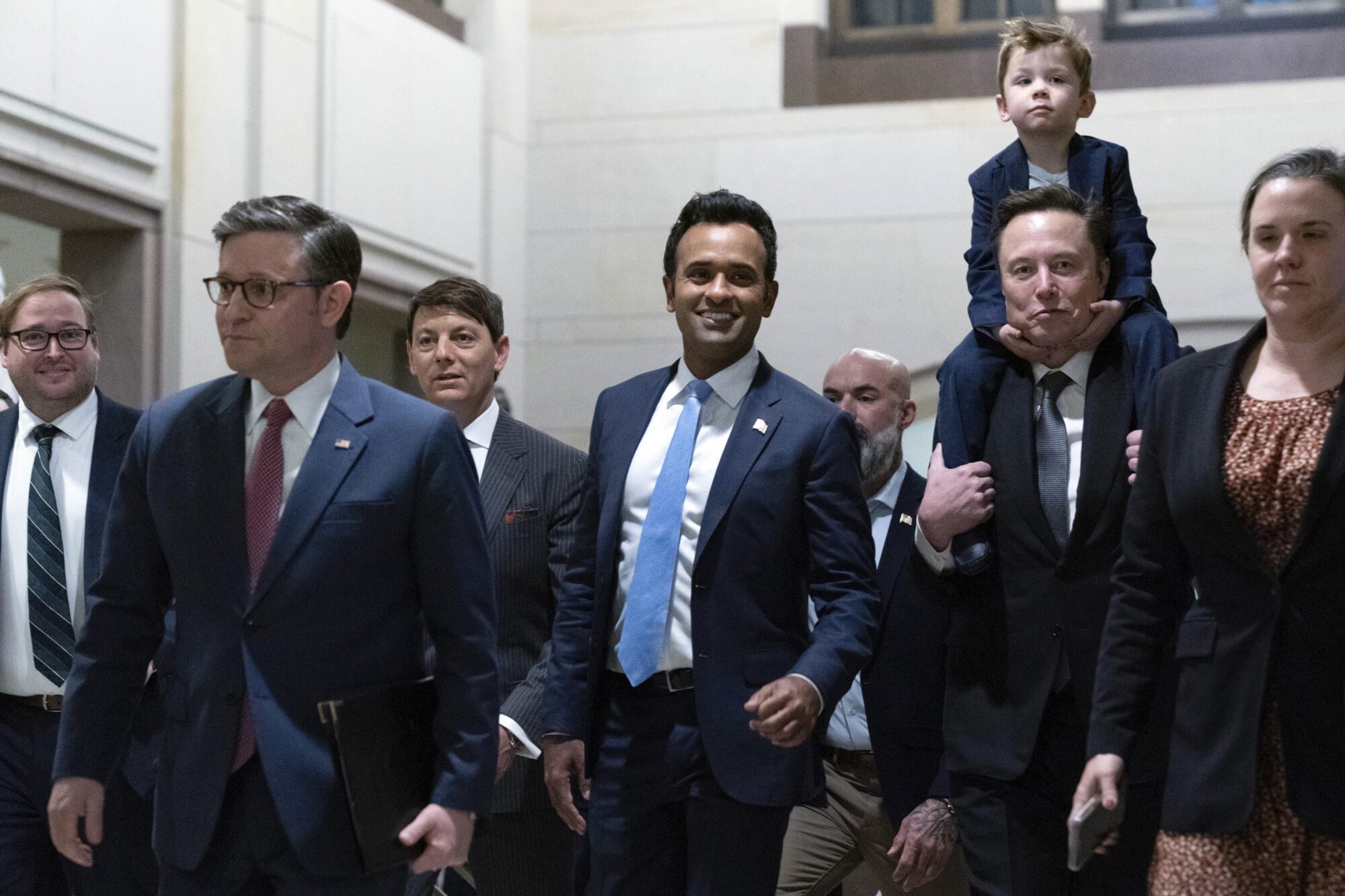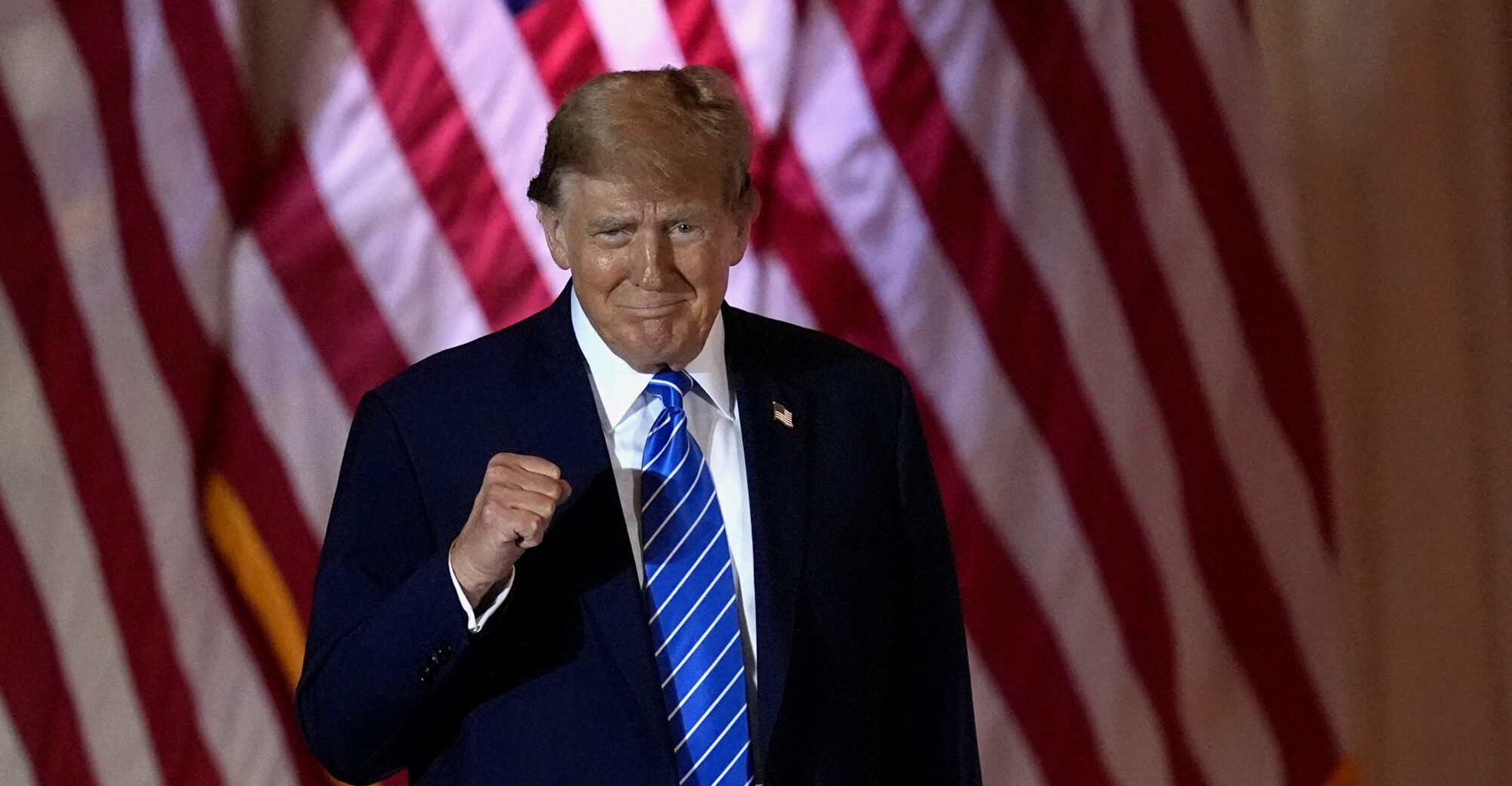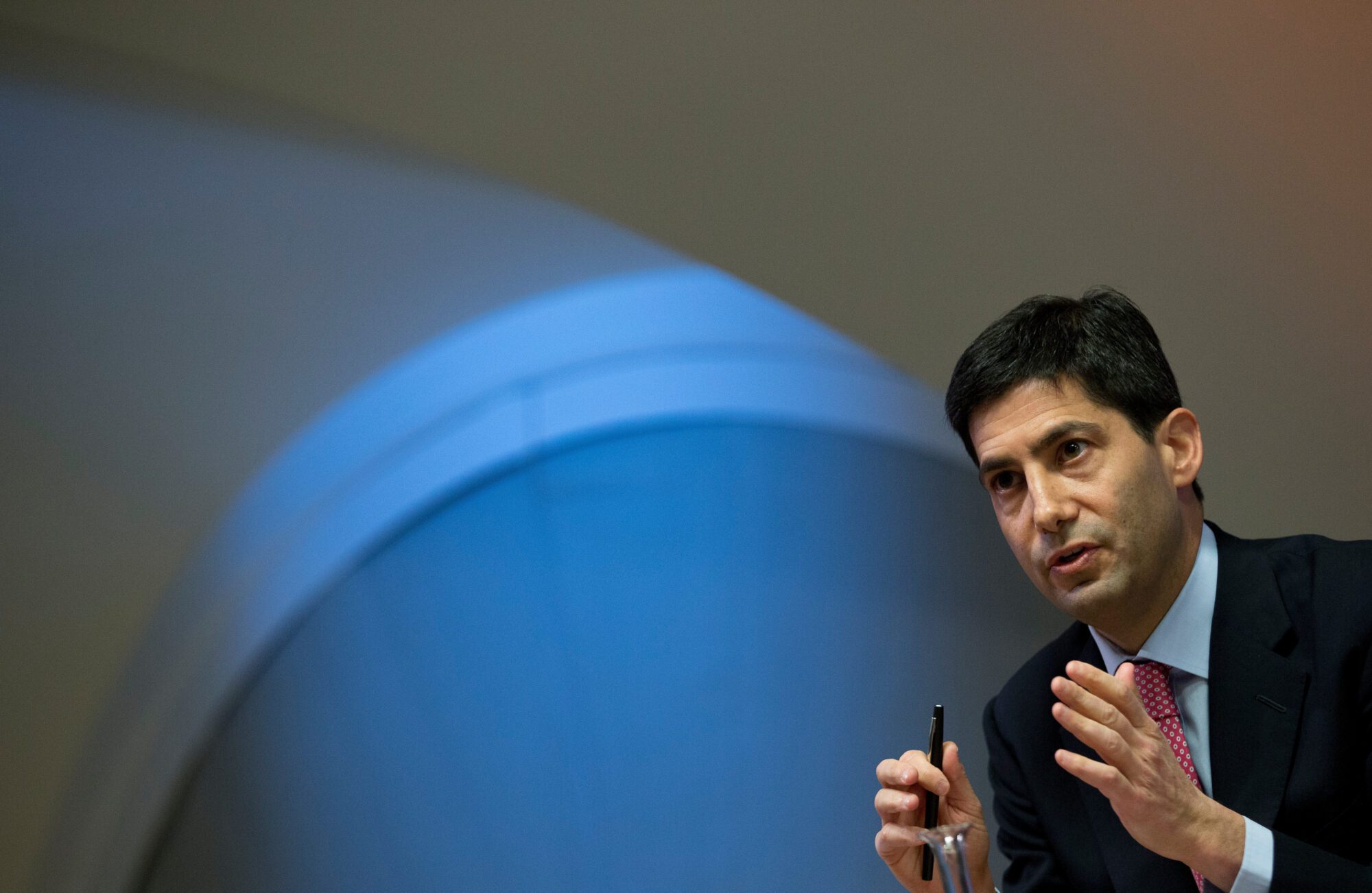
Speaker of the House Mike Johnson, R-La., from left, walks with Vivek Ramaswamy and Elon Musk, who is carrying his son X Æ A-Xii, as they arrive for a roundtable meeting to discuss President-elect Donald Trump's planned Department of Government Efficiency, on Capitol Hill in Washington, Thursday, Dec. 5, 2024. (AP Photo/Jose Luis Magana)
- ‘The Department of Government Efficiency’ has more opportunities than just reducing debt, headcount and spending. A big upside opportunity is taking on unchecked regulations.
Of all the things to emerge in the post ‘24’ election frenzy, DOGE (Department of Government Efficiency) may be the most fascinating. It’s not actually a department, but rather an 18-month project to identify waste, fraud, abuse, inefficiency and regulatory excesses that add to America’s debt burden and bog down the U.S. economy.
Taking on the bureaucratic state is not a new thing. Jonathan Swift satirized it in his 1726 masterpiece, “Gulliver’s Travels,” with the tiny Lilliputians entangling the giant Gulliver up in knots. A more recent example came in 1982 when President Ronald Reagan created the ‘Grace Commission’ with his charge to, “Drain the Swamp.” Commission chair, Peter Grace’s marching orders were, “Be bold and work like tireless bloodhounds, don’t leave any stone unturned in your search to root out inefficiency.” Alas, the 150 pages of recommendations presented to Congress in 1984 were largely ignored.
But it may be different this time. If it is, it will be due to the two remarkable individuals designated to oversee and lead it – Elon Musk and Vivek Ramaswamy. As the management maxim goes, “personnel is policy” and both of these gentlemen are hyper-high achievers.
Ramaswamy is a 39-year-old brainiac with an undergrad degree from Harvard, a law degree from Yale, a small fortune made in the biotech arena, a losing campaign for President but an effervescent gift of gab for debate and explaining things.
Already a legend, Elon Musk is the richest person in the world at around $400 billion and arguably the most consequential non-elected person on the planet. Importantly, he is not consequential because he is rich but rather rich because he is consequential. What Musk has accomplished in the business arena over the past 25 years is unmatched. He is inventing the 21st century in a similar manner that Thomas Edison invented the second half of the 19th century. At age 53, Musk is the CEO of Tesla, SpaceX, Neuralink, the Boring Company, X(Twitter) and xAI. The fact that Musk laid off 80% of the Twitter staff after he took control could be a foreshadowing of what lies ahead with DOGE. Musk is not without quirks to include Aspergers syndrome but some of those quirks surely factor in to his supernova productivity.
Pushing against Elon and Vivek will be the biggest, most expensive, most extensive bureaucracy in history. It goes by nicknames like the Blob or the Deep State or the Iron Triangle consisting of Congress, the bureaucracy and interest groups.
Context for the task ahead
When the Grace Commission began, the federal debt was $1 trillion. Today, it is $36 trillion.
What are DOGE’s potential targets? Here are a few:
- Bureaucratic bloat
- Spending not authorized by Congress
- Overregulation
- Unaccountable regulators recently called out in Supreme Court decisions
- Remote workers
- Foreign aid
- Specific Departments such as the Department of Defense (DOD)
The DOD would be a good place to start, and Elon is the right man for the job. SpaceX has already disrupted NASA with rocket launches and rocket catches (science without the fiction) and is a certified defense contractor with its low orbit satellite network (Starlink/Starshield) with over 6,700 satellites circling earth.
The DOD is one of the most important and secretive enterprises in the government. It is the biggest federal department with tough missions and personnel deployments that span the globe. It needs to be combat ready all of the time. No easy task, and what’s more, its close and complicated relationships with the defense and lobbying industries makes strategic planning even tougher. Of special concern is DOD’s failure in recent years to meet critical recruiting goals for soldiers and sailors. This is no small matter with kinetic conflicts underway and more brewing across the world.
In his 1961 Farewell Address, President Dwight Eisenhower famously warned the country, “We must guard against the acquisition of unwarranted influence, whether sought or unsought, by the military-industrial complex.” In the ten-minute address Ike mentioned ‘balance’ ten times. His very serious concern was the balance between the growing power and influence of the government, its departments, agencies and special interests, versus the rights and liberties of the people.
As someone who had served as Supreme Allied Commander in WWII and two terms as President, Eisenhower had a finely tuned understanding of power, its dynamics and inherent dangers. Those concerns have largely come to pass as the federal government’s departments and agencies have grown fantastically in both number and size since 1961. Some departments and agencies have become leviathans unto themselves. The DOD budget alone has ballooned from $44 billion in 1961 to $820 billion in 2023. Ike was right.
At a convocation at West Point last August, Elon Musk was asked by the Dean to share his vision of the battlefield of the future with the audience of cadets, faculty and alumni. Ironically, the convocation venue was Eisenhower (Ike) Hall. As Musk sees it, the front edge of the battlefield will be dominated by drones, thousands of drones, in swarms. The lethality will be intense for the soldiers, sailors and airmen, as well as the expensive weapon systems deployed around them.
The combat capability of drones is increasing rapidly, and they will surely change combat tactics and doctrine in the years to come. Musk emphasized the strategic need for the U.S. to up its drone production capacity to meet that of global competitors like China which is currently the global leader in drones. The cost differential between drones at $10,000 to $20,000 versus the M1A2 battle tank at $6 million or the F-35 fighter jet at $89 million is dramatic and should give military planners pause. It should give defense contractors selling super expensive weapon systems pause as well.
DOGE has more opportunities than just reducing debt, headcount and spending. A big upside opportunity is taking on unaccountable regulators and their unchecked regulations. These can be and often are a deadweight on the economy by restricting economic activity and suffocating the dynamism that makes entrepreneurs and free markets effective at creating economic growth, wealth and abundance. Such regulations often protect incumbent industries and their heavyweight influencers with little value add to the general public. They are what Eisenhower warned us about 65 years ago.
Removing these deadweights can create upside wins with very modest costs. It is where DOGE could make its mark. Ike was right, and he still is.










